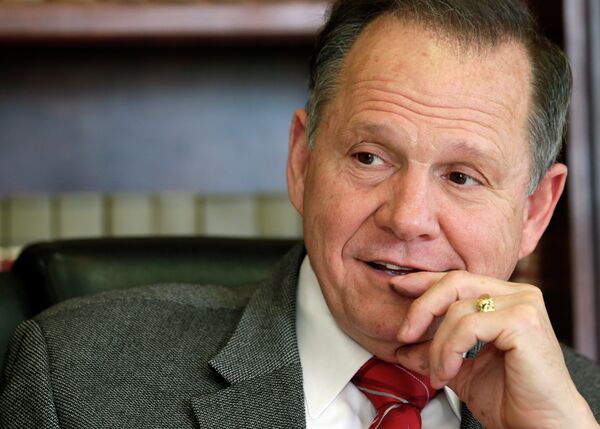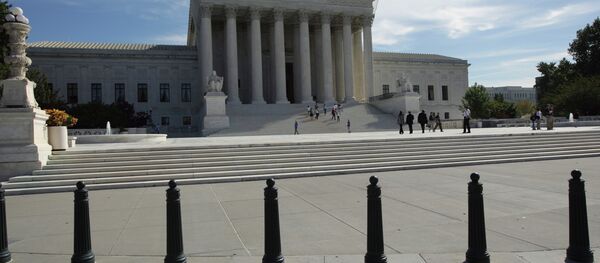The southern state becomes the 37th to recognize gay marriage, but Alabama Chief Justice Roy Moore ordered probate judges, to defy a federal court decision and refuse issuing marriage licenses to gay couples.

"To ensure the orderly administration of justice," Moore wrote in a letter sent to the judges Sunday night, "effective immediately, no probate judge of the state of Alabama nor any agent or employee of any Alabama probate judge shall issue or recognize a marriage license."
"A marriage contracted between individuals of the same sex is invalid in this state," he wrote.
Some judges in Alabama began issuing same-sex couples marriage licenses on Monday. Many couples had camped out overnight for a chance to tie the knot.
— Dr. Michael Bitzer (@CatawbaPolitics) February 9, 2015
But not all judges across the state are issuing licenses to same-sex couples.
— Jason Morton (@JB_Morton) February 9, 2015
The Human Rights Campaign urged probate judges to disregard the chief justice’s orders and issue the licenses in compliance with a U.S. District Court recent ruling.
"This is a pathetic, last-ditch attempt at judicial fiat by an Alabama Supreme Court justice — a man who should respect the rule of law rather than advance his personal beliefs," Sarah Warbelow, the organization's legal director, said in a statement.
Alabama voters approved a constitutional amendment banning gay marriage in 2006. However, U.S. District Judge Callie Granade’s ruled on Jan. 23 that Alabama must recognize same-sex marriages.
Moore argued that Granade had no authority to order the change and that Alabama courts could do as their judges saw fit until the U.S. Supreme Court ruled.
The Alabama chief justice has a history of criticizing gay marriage. In a 2002 custody ruling against a lesbian mother, he called homosexuality an “inherent evil.”
He also has a history of defying federal court decisions. He was removed as chief justice in 2003 for refusing to obey a federal court order to remove a Ten Commandments monument he had installed at the state judicial building in 2001. He returned as chief justice by voters in 2012.




